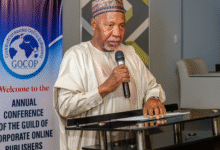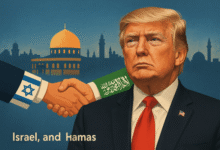Trump Announces U.S.-Russia Talks Ahead of Ukraine Ceasefire Deadline, Signals Sanctions Risk

As geopolitical tensions surrounding the Russia-Ukraine war intensify, U.S. President Donald Trump has confirmed that high-level diplomatic talks between the United States and Russia will take place on Wednesday, just days before a self-imposed ceasefire deadline expires.
“We have a meeting with Russia tomorrow. We’re going to see what happens,” Trump said on Tuesday, offering minimal detail on the agenda or participants.
The talks are widely seen as a last-ditch diplomatic effort to broker a ceasefire agreement, amid growing threats of expanded U.S. sanctions and increased global economic fragmentation.
Deadline Looms: Sanctions on the Table
Trump has given Russian President Vladimir Putin until Friday to agree to a ceasefire in Ukraine or face a new wave of sanctions, particularly targeting countries that continue to purchase Russian oil and gas.
The objective: Squeeze Moscow’s wartime revenue streams by cutting off its energy trade lifelines.
Analysts suggest that such measures could be modeled after secondary sanctions, similar to those once used against Iran, potentially forcing countries—particularly in Asia and Africa—to choose between access to the U.S. financial system and continued trade with Russia.
In addition, the U.S. president on Monday hinted at broader punitive measures, including raising tariffs on India, citing its sustained energy and defense trade ties with Moscow. Specific tariff details remain undisclosed.
Steve Witkoff Named as Envoy to Moscow
In a separate development, Trump revealed over the weekend that Steve Witkoff, his longtime associate and special envoy, would travel to Russia midweek to help facilitate the diplomatic outreach.
Witkoff, better known in business circles as a real estate executive, is not a traditional diplomatic figure—a fact that has drawn both intrigue and criticism from foreign policy experts.
“This is classic Trump-style backchannel diplomacy: unconventional, rapid, and unpredictable,” noted a Washington-based policy analyst.
Global Business Implications: Energy, Markets, and Risk
The stakes of the proposed U.S.-Russia Talks—and potential fallout from sanctions—are high for global energy markets, trade flows, and investor confidence.
- Oil & Gas: Sanctions on Russian energy buyers could cause supply disruptions and price spikes, particularly in emerging markets
- Currency Volatility: Sanctions rhetoric has already nudged the ruble, euro, and rupee into volatile territory
- Global Trade Tensions: Proposed tariffs on India and pressure on China to scale back Russian trade could further fracture already strained multilateral trade frameworks
For multinational companies, the unfolding scenario adds a fresh layer of geopolitical risk, especially for firms exposed to energy, defense, and commodities markets in Europe and Asia.
BRANDECONOMY INSIGHT: War Diplomacy Meets Trade Warfare
Trump’s strategy—leveraging trade and financial instruments to influence global conflict—is a reminder of the blurred lines between diplomacy and economic coercion in modern geopolitics.
This episode underscores three key trends shaping the global economic order:
- Economic Statecraft is now central to international relations
- Non-traditional envoys and shadow diplomacy are rising under populist governments
- Energy security remains the core battleground of 21st-century conflict resolution
Should the ceasefire talks fail, expect swift capital market responses, increased hedging in oil futures, and further policy uncertainty in multilateral trade institutions.
What to Watch
- Outcome of Wednesday’s meeting and possible announcements by Friday
- Sanctions language and how far Washington goes in targeting third-party countries
- Reactions from China, India, and Turkey, all of whom maintain nuanced positions on the Ukraine war
- Market reaction, particularly in energy, defense, and emerging market equities
As Washington and Moscow square off in a high-stakes diplomatic standoff, the world watches—not just for peace—but for signals of a new global economic recalibration.











